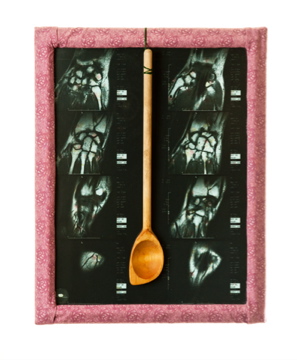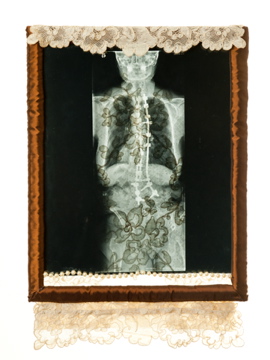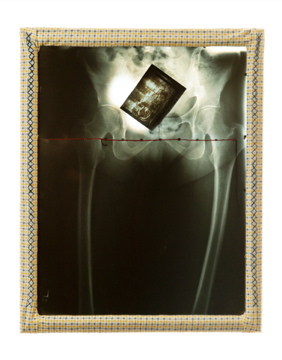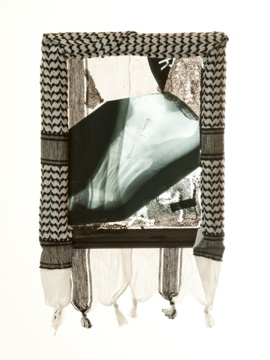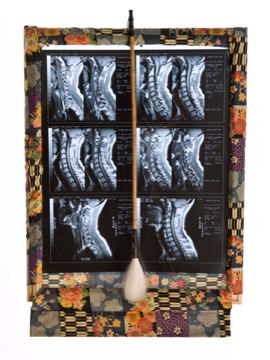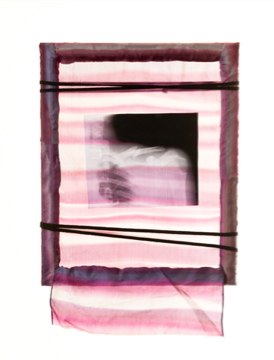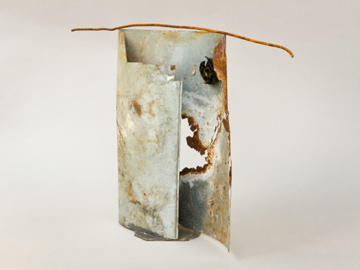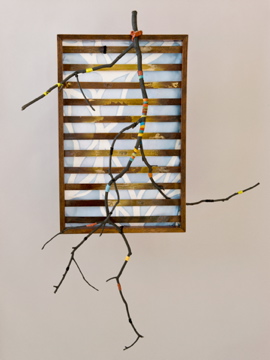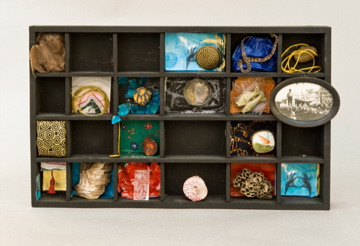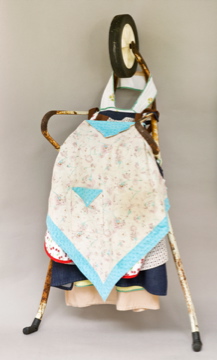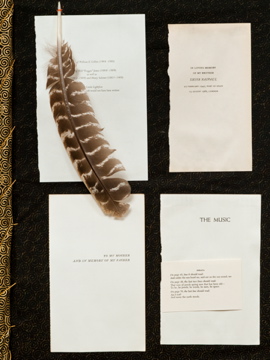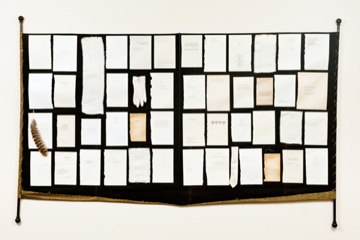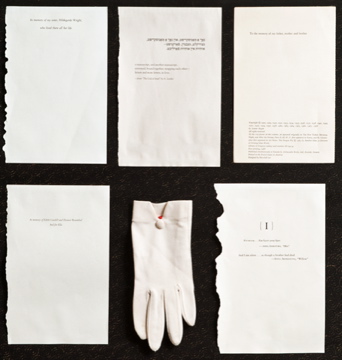In Jewish tradition, midrash is commentary on sacred text written to explain what is unclear or apparently conflicting in a Biblical narrative or other religious scripture. Visual midrash also seeks to clarify sacred text — in the form of painting, drawing, sculpture, ceramics, fabric/fiber art, photography, film, or mixed media.
For the past six years I have belonged to an Artists Beit Midrash at Congregation Beth Sholom in Teaneck, NJ. We study text together with a rabbi or other scholar and then the artists go to their studios to create visual commentary. At the next session our work is critiqued, both as midrash and as art, by an artist-teacher and the group. The year’s study culminates in an exhibit of the midrashim.
In addition to the usual dimensions and materials, I have indicated the text the art comments on.
The Justice Project is a series commenting on Deuteronomy 1: 16-17. “Judge worth equally between each man and his brother or a sojourner. You are not to favor a face in judgement, as the small, so the great, you are to hear-them-out.”
Everyone, regardless of social or legal status, must be judged on factual evidence. In addition to Israelites, servants and strangers also deserve justice. Judging and diagnosing are related processes: facts are analyzed to arrive at a conclusion. Using X-rays and other diagnostic images, fabric, and one other identifying element , I have made portraits of those who might come before a judge in a court. When The Justice Project is finished, there will be 18 portraits illuminated on a wall-sized light board.
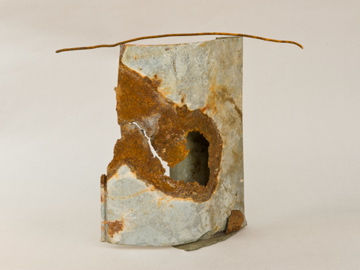
Moses Ascending Mt. Nebo (front)
Found objects of metal and plastic, on slate
20″ x 15″ x 4″
Moses went up from the plains of Moab to Mount Nebo, to the summit of Pisgah, opposite Jericho, and the Lord showed him the whole land; Gilead as far as Dan, All Naphtali, the land of Ephraim and Manasses, the whole land of Judah as far as the Wester Sea; the Negeb; and the Plain–the Valley of Jericho, the city of palm trees–as far as Zoar. And the Lord said to him, “This is the land of which I swore to Abraham, Isaac, and Jacob, ‘I will assign it to your offspring.’ I have let you see it with your own eyes, but you shall not cross there.” So Moses the servant of the Lord died there, in the land of Moab, at the command of the Lord. He buried him in the valley in the land of Moab near Beth-neor; and no one know his burial place to this day. Deuteronomy 34:1-6
Voice Goes Out
Curtain rods, fabric, book dedication pages, feather, glove, necktie
52″ x 36″
There are six things whose voices go from one end of the world to the other and yet their voices are not heard….And at the moment the soul goes out from the body, the voice goes out from one end of the world to the other, yet the voice is not heard. –Pirkei Rabbi Eliezer, chapter 34

